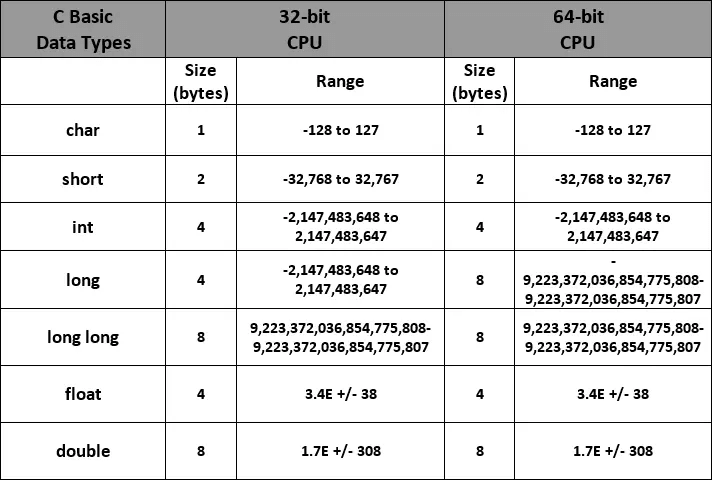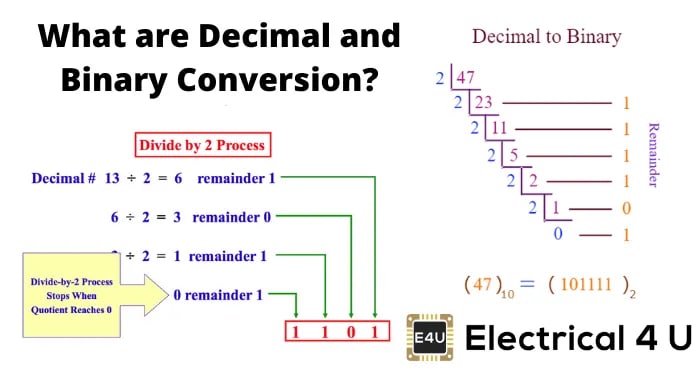We will go over data repersentation of computer systems this chapter. That is, when we need to think in a computer way, you should know how computer think at first (in binary).
Chapter. 2 Repersentation in C
1. Base
What is the base of a number?
Generally, the number that we use in daily life like 50 dollars, 100 pounds, 1,000,000 people are all base 10, which means that these number are all decimal.
And usually, there are different bases we use in studying system, like binary number (base 2), octal number (base 8), and hexadecimal number (base 16).
We can see them being used in computer world:
When the numebr is followed by a character "b", that means it is a binary number:
0101b (BIN) = 0 * 2^3 + 1 * 2^2 + 0 * 2^1 + 1 * 2^0 = 5 (DEX)
Number like '0X1E', is HEX number:
0X is the prefix of the hexadecimal number. We have:
0X1E (HEX) = 1 * 16^1 + 14 * 16^0 = 30 (DEX)
2. Bit and Byte
1 Byte = 8 Bits
And the important repersentations of every data type in C:

Specially, one another data type in C is called POINTER, which is also significant:
Pointer:
- 4 bytes in 32-bit-system
- 8 bytes in 64-bit-system
The knowledge that we are reviewing, is usually based on 32-bit systems
3. Conversion between different bases
- DEC to BIN:

There is the same way to do with other bases number except for BIN.
- BIN to DEC: mentioned above
- X base number to Y base number:
- X base to DEC
- And then DEC to Y base
4. Addition and multiplication of binary
5. One's Complement
When comes to 1100 1001 (which is equal to 201 in decimal):
THe 1's complement of 1100 1001 is 0011 0110, which turning 1 to 0, and turning 0 to 1.
6. Two's Complement
Two's complement is used to do the substraction or repersenting negative number in binary (Of course, adding a negative is substracting a positive number).
How to repersent -5 in binary, when we know 5 is 0101 in binary in a 8-bit machine?
- Get the 0101's 1's complement in 8-bit machine, having 1111 1010.
- Add one, having 1111 1011. Then, 1111 1011 is the number repersenting -5 in 8-bit machine.
That is:
2's complement = 1's complement + 1
7. Intro of Overflow and Underflow
They happen when sum of 2 positive (or negative) number but get the negative (positive) number in machine, due to the fact that when machine has no more bit to extend to repersent this number.
Overflow: Sum of 2 positive but get the negative
Underflow: Sum of 2 negative but get the positive
8. Extension and Truncation between high-bit and low-bit
This part would be the most important part of bit and byte chapter. I would like to go over this part in next post, because I think it would cost me few hours to design how to explain it in a comfortable way.
Hope you like my post! You red heart or subsrcibtion are the energy of me! Thank you!



Top comments (0)